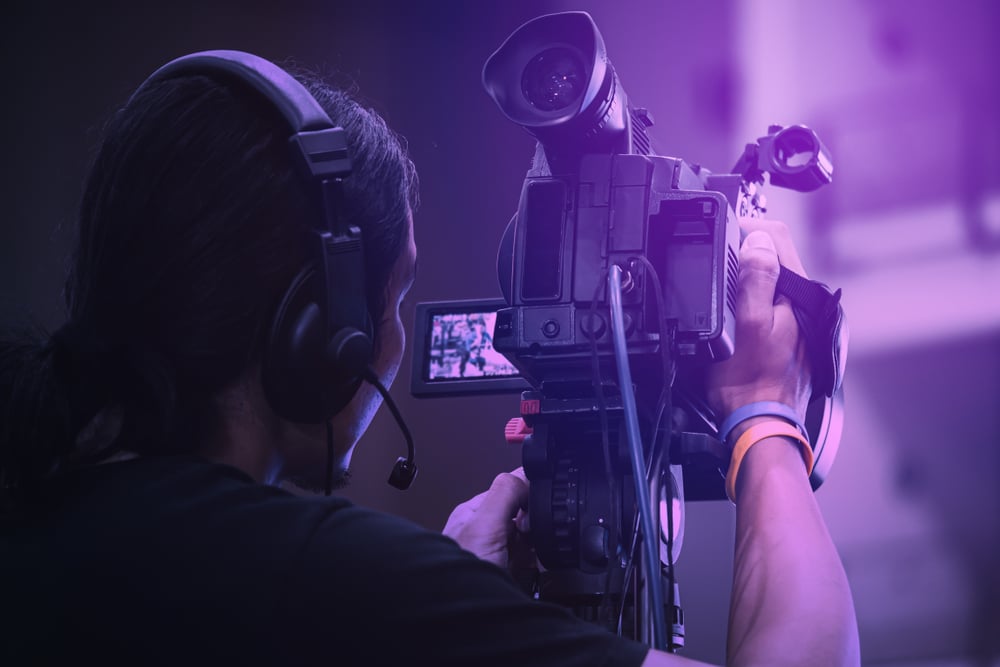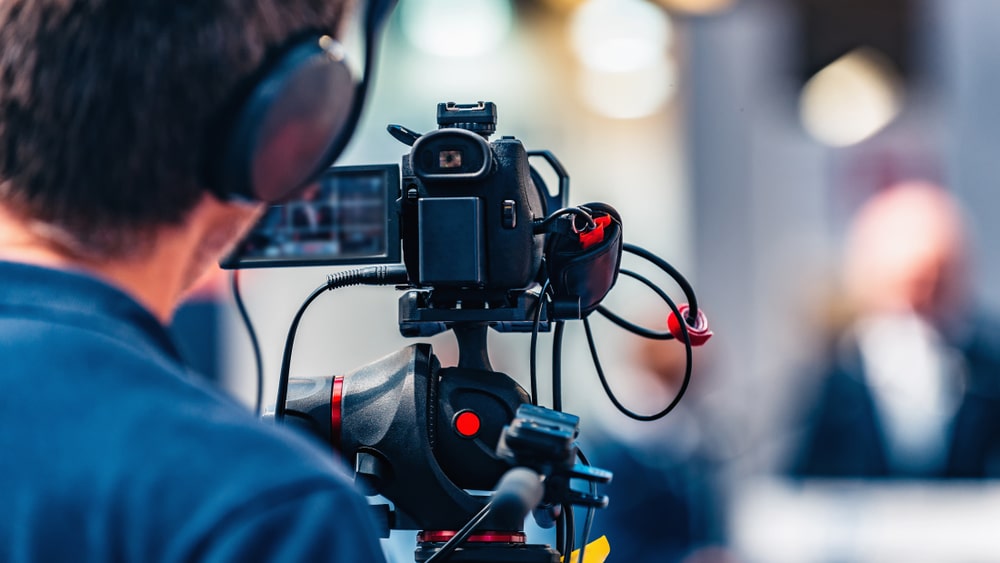The impact of non-verbal communication in legal video depositions
Wiki Article
The Relevance of Legal Video Depositions in Modern Legal Services: What You Should Know
Lawful video clip depositions have actually ended up being necessary in today's legal landscape. They offer a multidimensional view of witness testimonies that typical records just can not match. By catching both verbal and non-verbal interaction, these depositions improve the overall understanding of a witness's integrity. The effectiveness of video depositions hinges on numerous aspects, including conformity with legal criteria and finest practices. Discovering these aspects reveals their real relevance in modern lawful servicesWhat Are Legal Video Clip Depositions?
Lawful video depositions act as an important tool in the lawsuits procedure. They involve tape-recording witness testaments in a video clip format, capturing both verbal and non-verbal interaction. This method allows attorneys to document the temperament, expressions, and responses of witnesses, providing a richer context for the testimony. Usually carried out in a controlled atmosphere, these depositions are led by attorneys who ask concerns while a court press reporter documents the dialogue. The resulting video can be vital for test preparation, as it allows attorneys to examine the reputation of witnesses and improve their strategies. In addition, legal video depositions can be utilized in numerous legal contexts, ranging from civil conflicts to criminal situations. The aesthetic and acoustic elements of video clip depositions boost the discussion of evidence, making it a necessary element in the contemporary legal landscape. On the whole, they add significantly to the performance and performance of legal proceedings.
Benefits of Video Clip Depositions Over Standard Techniques
Video depositions supply various benefits compared to conventional approaches of taking witness testimonies. One considerable advantage is the ability to catch both visual and audio aspects, giving a more detailed record of the witness's statements. This double layout enhances clarity and enables lawful specialists to reference particular nuances throughout test prep work. Additionally, video depositions help with remote involvement, making it less complicated for witnesses who may be unavailable for in-person appearances because of geographical restrictions or wellness issues.Moreover, video clip depositions can quicken the overall deposition process, reducing the time and costs related to travel and logistics. They also enhance availability, as taped depositions can be quickly shared amongst legal teams and referenced at any moment. This benefit contributes to much better situation management and preparation. Overall, video depositions stand for a modern-day, reliable technique to collecting witness statements, lining up with the developing needs of the lawful career.The Function of Body Language and Tone in Testimonies

In legal video depositions, body movement and tone play important duties in communicating a witness's trustworthiness and credibility. Nonverbal signs can supply insights right into a witness's mood, affecting how their testament is perceived. Recognizing the effect of these components is important for lawyers and jurors alike when reviewing the reliability of a testament.
Nonverbal Communication Insights
While spoken communication is commonly emphasized in legal testaments, nonverbal cues such as body movement and tone play an important duty in conveying integrity and emotion. Viewers of depositions might keep in mind that a witness's stance, motions, and faces can greatly influence understandings of reliability. As an example, constant eye get in touch with may signal confidence, while avoiding look might suggest dishonesty or pain. Similarly, the tone of voice-- its pace, pitch, and volume-- can give sensations of genuineness or unpredictability. Legal experts need to be in harmony with these nonverbal signals, as they usually give critical context that complements talked words. Recognizing these nuances can boost the efficiency of depositions and influence the outcome of legal proceedings.Psychological Tone Effect
The emotional tone conveyed during lawful statements considerably affects how a witness is perceived. Body movement, vocal inflections, and facial expressions play vital duties in forming the narrative of a testimony. A witness showing self-confidence through steady eye call and a calm tone can instill a feeling of dependability and engagement. Alternatively, indications of anxiety, such as fidgeting or an unsteady voice, may lead to suspicion concerning their account. The subtleties of psychological expression can influence the analysis of truths, making it important for lawyers to identify these hints. In video clip depositions, the visual and acoustic components incorporate, emphasizing the value of emotional tone in sharing sincerity and reliability within the legal process.Reliability and Reliability
An important consider establishing reputation and credibility throughout testaments hinges on the witness's body movement and intonation. Observers commonly depend on non-verbal signs-- such as eye contact, position, and motions-- to analyze a witness's sincerity. For example, a witness that keeps eye contact and displays open body language might be regarded as even more truthful and trustworthy than one who prevents eye call or shows up blocked. Furthermore, tone of voice plays a crucial function; a constant, tranquil tone can enhance the trustworthiness of the statement, while changes in pitch or volume may raise doubts. Ultimately, the mix of body movement and singing tone considerably influences how a witness's statements are obtained and analyzed in a lawful context.Finest Practices for Conducting Video Clip Depositions
Performing video depositions requires careful preparation and implementation to guarantee a clear and effective discussion of statement. It is vital to select a quiet, well-lit area to lessen distractions and safe and secure ideal video top quality. The equipment needs to be checked ahead of time, including electronic cameras, microphones, and illumination, to avoid technological issues during the deposition.Next, events included have to evaluate the layout and procedures in advance, making sure that everybody recognizes their functions. The deponent needs to be briefed on the procedure, consisting of how to respond plainly and concisely.Additionally, maintaining an expert demeanor throughout the session is necessary. This includes abstaining from talking over each other and confirming that all concerns are routed suitably. Finally, it is important to record the deposition in a format that enables simple playback and testimonial, preserving the integrity of the statement for future usage.Lawful Factors To Consider and Conformity Issues
Just how do lawful factors to consider and conformity concerns influence the effectiveness of video depositions? Attorneys must navigate a complex landscape of policies, guaranteeing that video depositions stick to jurisdictional rules and criteria. Compliance with regulations worrying privacy, approval, and taping techniques is vital. As an example, obtaining explicit permission from all events involved is essential to avoid legal repercussions.Additionally, the admissibility of video evidence in court can rest on compliance with step-by-step demands. Guaranteeing that the equipment made use of satisfies technical criteria is likewise important, as low quality can threaten the deposition's reliability.Moreover, attorneys must know any type of specific state legislations that click for source govern video clip depositions, as these can vary substantially. Failure to resolve these considerations can not just endanger the honesty of the deposition however additionally impact the total case method, ultimately impacting the client's legal end results.How Video Clip Depositions Influence Jury Understanding
While video clip depositions can act as effective devices in legal procedures, their impact on jury understanding is substantial. The acoustic and aesthetic elements of video recordings supply jurors with a more discover this extensive understanding of witness demeanor, integrity, and psychological responses. This multimedia technique can boost the jurors' capacity to assess the dependability of statement contrasted to typical text-based transcripts.Moreover, video depositions allow jurors to observe body language, tone of voice, and face expressions, every one of which can influence their analysis of the witness's declarations. The visibility of a witness on display can humanize them, fostering empathy and connection, which may sway jurors' opinions. Conversely, a witness who appears evasive or untrustworthy on video may lead to negative perceptions that influence a court's choice. Inevitably, the vibrant nature of video clip depositions plays a crucial function fit exactly how jurors interpret evidence and reach their verdicts.The Future of Video Clip Depositions in Legal Technique
As improvements in innovation continue to reshape the legal landscape, the future of video clip depositions is positioned for considerable evolution. Innovations such as fabricated intelligence, digital reality, and enhanced video clip conferencing devices are anticipated to simplify the deposition procedure and enhance ease of access. Lawyers might utilize AI-driven analytics to assess witness reliability and instance stamina much more effectively.Moreover, the integration of digital truth can enable juries to experience immersive simulations of depositions, giving deeper context and understanding. In addition, the pattern toward remote depositions is most likely to persist, supplying higher adaptability for attorneys and customers alike.As remote work comes to be progressively stabilized, video depositions will likely come to be conventional practice, minimizing costs and time restrictions connected with standard methods. Generally, these technical developments assure to enhance the effectiveness, performance, and ease of access of video clip depositions in lawful practice, eventually transforming exactly how lawyers get ready for test.Frequently Asked Concerns
Just How Much Do Lawful Video Depositions Usually Price?

Can Video Depositions Be Made Use Of in Any Kind Of Kind of Case?
Video depositions can be made use of in different types of cases, consisting of civil, criminal, and household legislation. Their flexibility permits lawyers to present witness testaments successfully, adapting to the specific demands of different lawful circumstances.What Equipment Is Required for a Video Deposition?
To perform a video clip deposition, important tools consists of a top quality camera, microphone, illumination, and a reputable recording device. Furthermore, a computer system with editing and enhancing software program may be necessary for post-production and formatting the final video clip.For how long Does a Common Video Clip Deposition Last?
A common video clip deposition lasts between 2 to 4 hours, depending on the intricacy of the case and the number of inquiries posed. Prolonged sessions might occur, however breaks are generally integrated for individual convenience.

Are Video Clip Depositions Admissible in Court?
Video depositions are usually admissible in court, offered they comply with legal criteria and rules of proof. Their use improves quality and protects witness testimony, assisting in visit this site right here the judicial process during hearings and trials. Lawful video clip depositions have ended up being important in today's legal landscape. Additionally, legal video clip depositions can be utilized in various lawful contexts, ranging from civil disputes to criminal instances. In addition, video depositions promote remote participation, making it simpler for witnesses who may be not available for in-person looks due to geographical restrictions or wellness issues.Moreover, video depositions can speed up the overall deposition procedure, lowering the time and expenses linked with travel and logistics. Guaranteeing that the devices utilized satisfies technical standards is also crucial, as poor high quality can weaken the deposition's reliability.Moreover, attorneys must be aware of any kind of certain state legislations that regulate video depositions, as these can vary significantly. Additionally, the pattern toward remote depositions is likely to linger, supplying greater flexibility for clients and attorneys alike.As remote work becomes progressively stabilized, video clip depositions will likely come to be common technique, minimizing expenses and time restraints associated with typical techniques.Report this wiki page